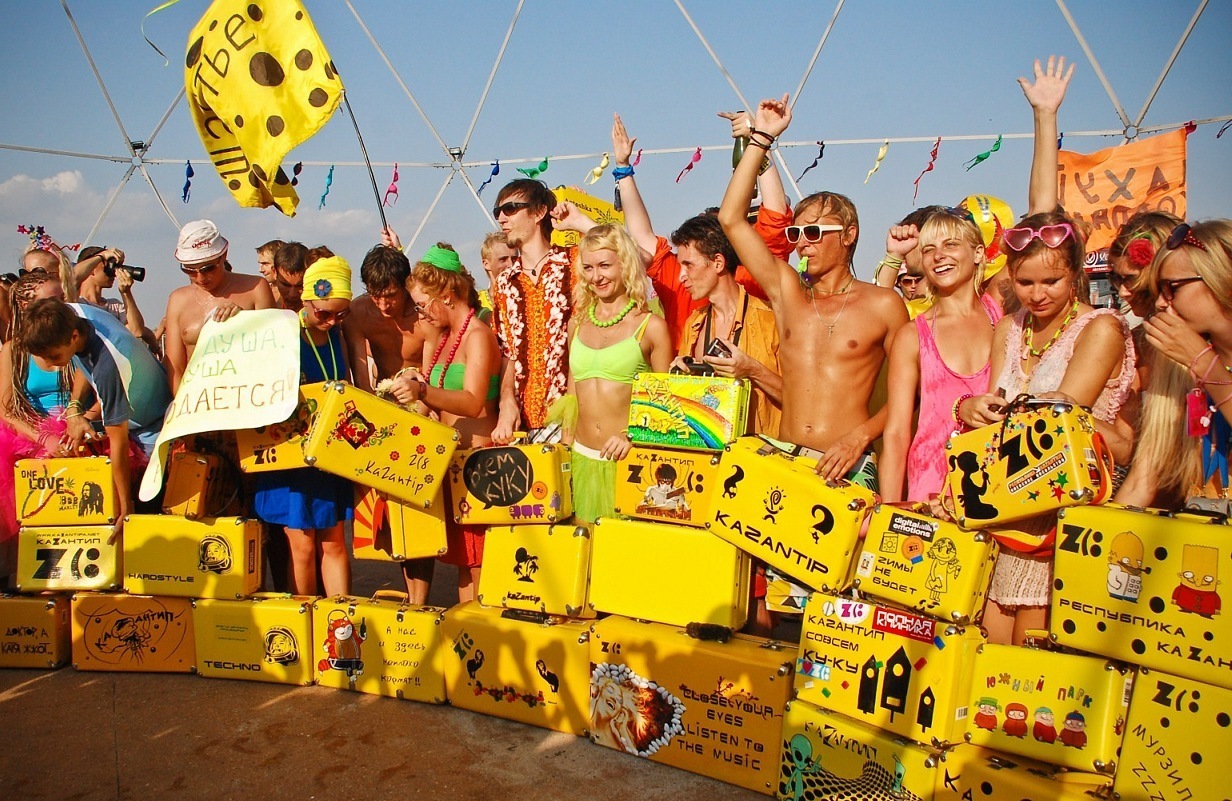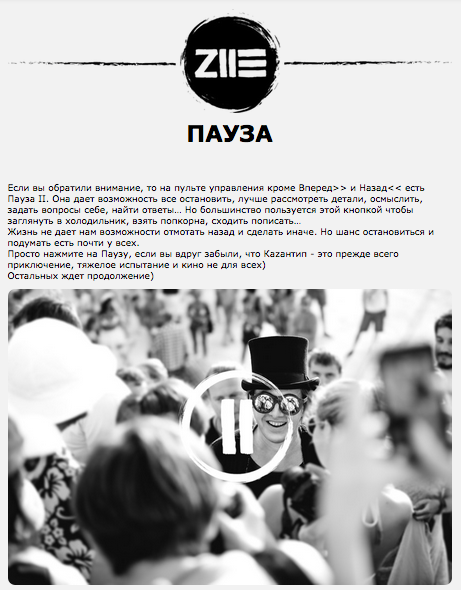[Note: This article is a little off-topic but we think you will enjoy it :)]
In this post we do a little digging into a pseudo “republic” / club culture festival called Kazantip, and report on the troubles the organisers faced migrating the event from the Crimean Peninsula to Cambodia. It’s a tale that twists and turns: we’ve got upheaval, we’ve got nudity, we’ve got Russian mafia, and a collective of displaced yellow suitcase-wielding revelers. Read on and learn.
What is Kazantip?
This is a fairly complex question which is only answered when the author of the website’s PR momentarily departs from the winding imaginary to throw us “relatively more normal people” a bone: “it’s a big international annual club culture festival held in summer at the Black Sea coast of Crimea, Ukraine”. They would much rather we thought of it as an “imaginary republic” though.
It was founded by Nikita Marshunok in 1992, off the back of a windsurfing competition that culminated in a low-key rave. The organisers now claim a draw of 100,000 attendees who can enjoy some 6 dance floors, 30 bars and restaurants, 2 open-air cinemas, 3 kitesurfing stations and more. As a side, in 1997 Marshunok (also known as the PreZident) threw a party called “The Night at the Reactor” which literally took place in an abandoned nuclear power station (of course the station never went online – it was likely decommissioned partway through construction following the Chernobyl disaster). Pretty epic.

The Long Road to Cambodia
The first time the event relocated was in 2000 – at this point the festival became untethered from a particular place and was reimagined as a free-flowing collective – a republic – with its own mission and modus operandi. The following year it settled in Popovka, on the Black Sea Coast of the Crimean Peninsula.
All was well until the Ukrainian revolution in 2014, which led to the annexation of Crimea by the Russian Federation via undue force. The sovereignty of this slither of land is still contested; despite the international community’s unwillingness to acknowledge Russia’s claim to control, nobody is able to do much at this point. Being a republic, Kazantip looked to new pastures. In 2014 the festival took place outside of Ukraine in Anaklia, Georgia. How and why they chose an obscure island on Cambodia’s central coast for 2015 is anyone’s guess. Or is it?
The Inside Story
At this point the Radar employed the help of the VOID Shanghai crew to come to understand how and why the organizers chose – or were even able to consider – such an obscure location. VOID is an underground house and techno crew based in Shanghai, and consisted of five members at the last count. One of them is Ginzburg, who comes from Rostov – a town in Yaroslavl Oblast, Russia. Here’s our connection.
It turns out that the host island – Koh Puos – is (supposedly) owned by Russians…
Kazantip 2015 Cancelled
With that said, the organizers filed their papers and got the festival locked in for 18-28th February. Here are the permits. Two members of VOID and another close friend were set to play, however from the beginning they were warned that there might be some complications. Nevertheless, they headed over to the island along with thousands of predominantly Russian revelers with yellow suitcases.
The festival was abruptly cancelled. The single bridge to the island was reportedly blocked off by police, and both DJs and fans had to make do with fringe events that were sporadically set up in youth hostels among other places (the VOID say people still had a good time, with their first event drawing 400 people). The Kazantip website claimed force majeure (they filed their papers and got the green light after all), and subsequent local and international press coverage cited differences in opinion between the tourism / culture ministries and local politicians as leading to the cancellation. Local governors raised concerns about the “sexy activities” the event encouraged.

‘summer all year round’ and ‘life with no pants’.”
Why was Kazantip Really Cancelled?
Most would be prepared to leave it at that, however there is another angle. There is a claim that the reason the festival was called off was because the Russian mafia had approached the organizer and asked for a cut. A cryptic post on the website (run through a translator on our end as we don’t speak Russian) could contain further clues. So there are a few variations on what went down:
1 – The festival was pushed through, all was well, but local government representatives – once they became further informed on the event’s hedonistic background – backtracked and pressured the licensing bodies to reverse the decision.
2 – The festival was pushed through, all was well, but then the mafia (perhaps via connections with the island’s hypothetical Russian owners) stepped in to cash in.
3 – A combination of the two.
What’s the Takeaway?
In an attempt to spin this mad story into a lesson, we’d say that it shines light on the difficulties organizers of festivals can face when migrating platforms to developing territories. It’s a classic scenario: platforms that were incubated in more liberal countries have to confront and navigate conservative mindsets, new cultures, religions, institutions and all the rest of it. It comes down to localization – Cambodia hasn’t got the infrastructure to support a mature music industry, and people are still (for the most part) working and spending to get by. There is also an argument that the Cambodian authorities failed to make use of the opportunity as a means of developing a little soft power, however we don’t have space to explore the argument fully in this article.
The Kazantip organisers could have tweaked the hype a bit, and read a little deeper into the wider sociopolitical context. But who has time for that?
Good luck to the future Kazantip!

